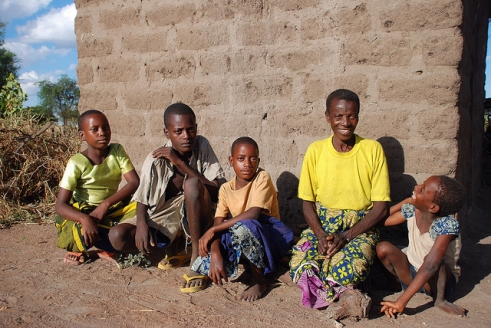15 June is World Elder Abuse Awareness Day (WEAAD). HelpAge International and its partners across the world are calling for legal protection and justice for older people facing violence.
Until recently, elder abuse remained well hidden from public view. Today, it is increasingly being seen as a growing problem as many countries experience rapid ageing of their populations.
Information on abuse is scarce
Information on the extent of abuse in older populations across the world is scarce. The few studies that have been conducted show that between 4% and 6% of older people have experienced some form of abuse in their homes.
“Globally, there are different factors that may affect the risk of elder abuse,” says Bridget Sleap, Rights Adviser with HelpAge International.
“These include the depiction of older people as frail, weak and dependent; the migration of younger families to urban areas leaving older parents alone and sometimes isolated and vulnerable; or the systems of inheritance and land rights, which may have a severe impact on older people’s livelihoods and rights”.
Older women particularly at risk
In cultures where women have a low social status, such as in Tanzania, older women are especially at risk of being abandoned and having their property seized. At its most extreme, older women are at risk of being accused of witchcraft. It is estimated that 1,000 women a year are killed in Tanzania due to witchcraft allegations.
“The problem is not unique to Tanzania,” says Bridget Sleap.
“HelpAge has identified the problem in Nepal, India, Ghana, Burkina Faso, Kenya and Malawi, though the problem is much more widespread than this.”
Mbuke, in her early 60s, from Sukumaland, Tanzania told us: “Last year, I received threatening letters. The letters said that I was a witch and ordered me to leave the village. If I didn’t go they would come and kill me. Why was I targeted? I think it’s because I am living alone.”
Protection against domestic violence in Kyrgyzstan
In Kyrgyzstan, HelpAge coordinates a programme which aims to protect older people, especially older women, against widespread, yet invisible, domestic violence, neglect and abuse.
Janet Duffield, acting Regional Representative for HelpAge in Eastern Europe and Central Asia, says:
“Our project in Kyrgyzstan aims to break the silence around elder abuse. Older women, are among those who are least able to escape violence but often lack voice due to the societal taboo attached to elder abuse and because they are often dependent on their abuser.”
HelpAge recommends that:
• the 186 countries that have ratified CEDAW (UN Convention on Elimination of All Forms of Discrimination Against Women) meet their existing obligations to put in place systems, legal and other, to protect all women, young and old, from violence and abuse.
• data collection and disaggregation is improved to make the issue more visible.
• governments invest in training of health professionals, the judiciary and law enforcement agencies to recognise abuse
• more funding is allocated to community initiatives that change attitudes and tackle age discrimination and ageism.
Finally, a UN Convention of the Rights of Older People would ensure that all countries that ratify it had an obligation to put in place these protective legal systems.
For more details on World Elder Abuse Awareness Day (WEAAD) please visit the INPEA website
